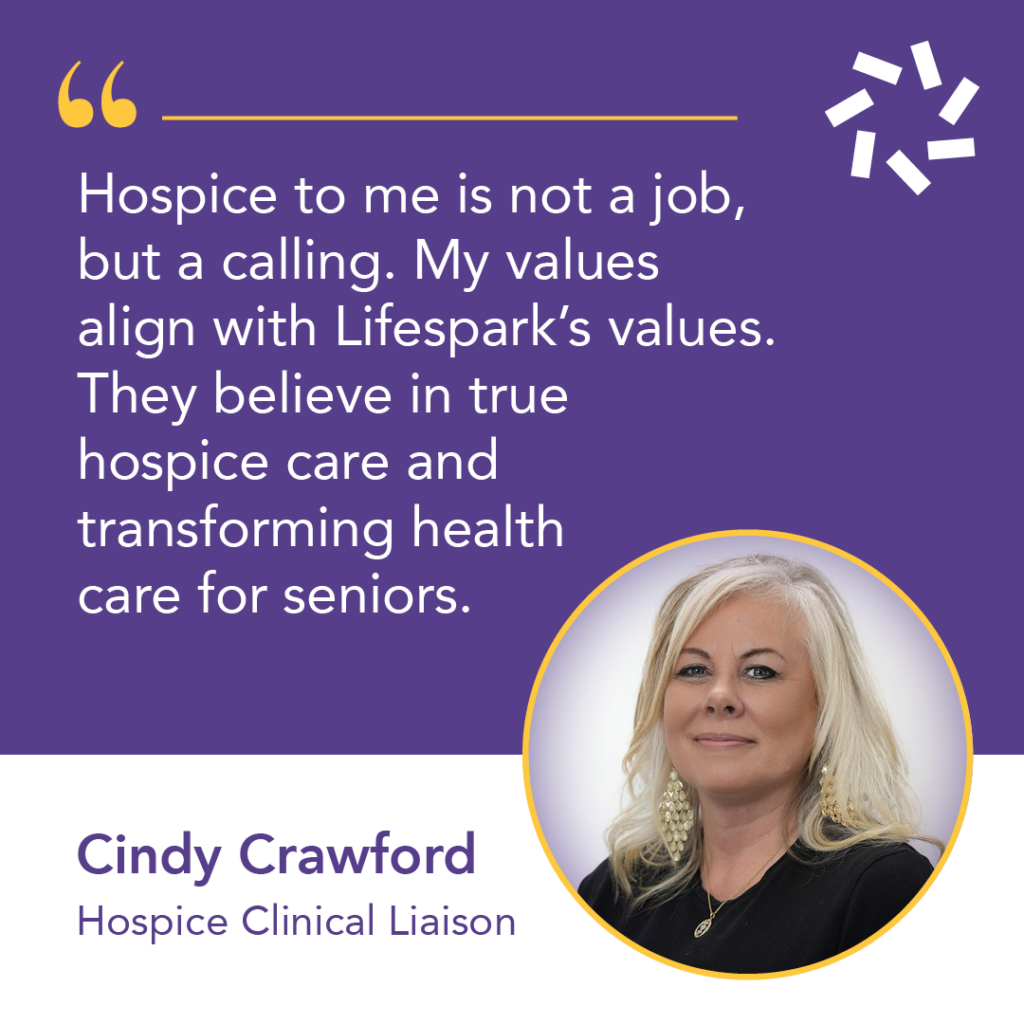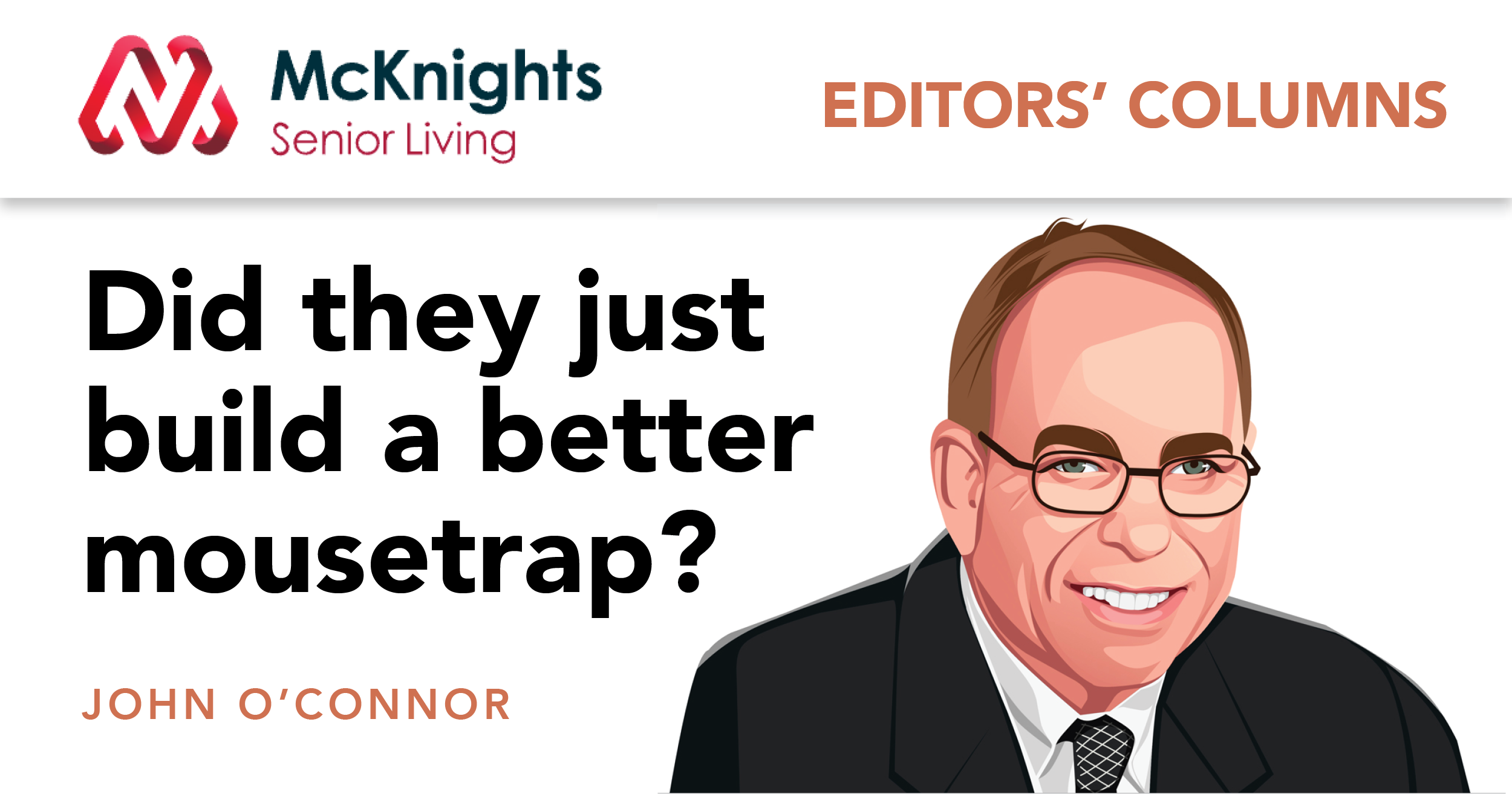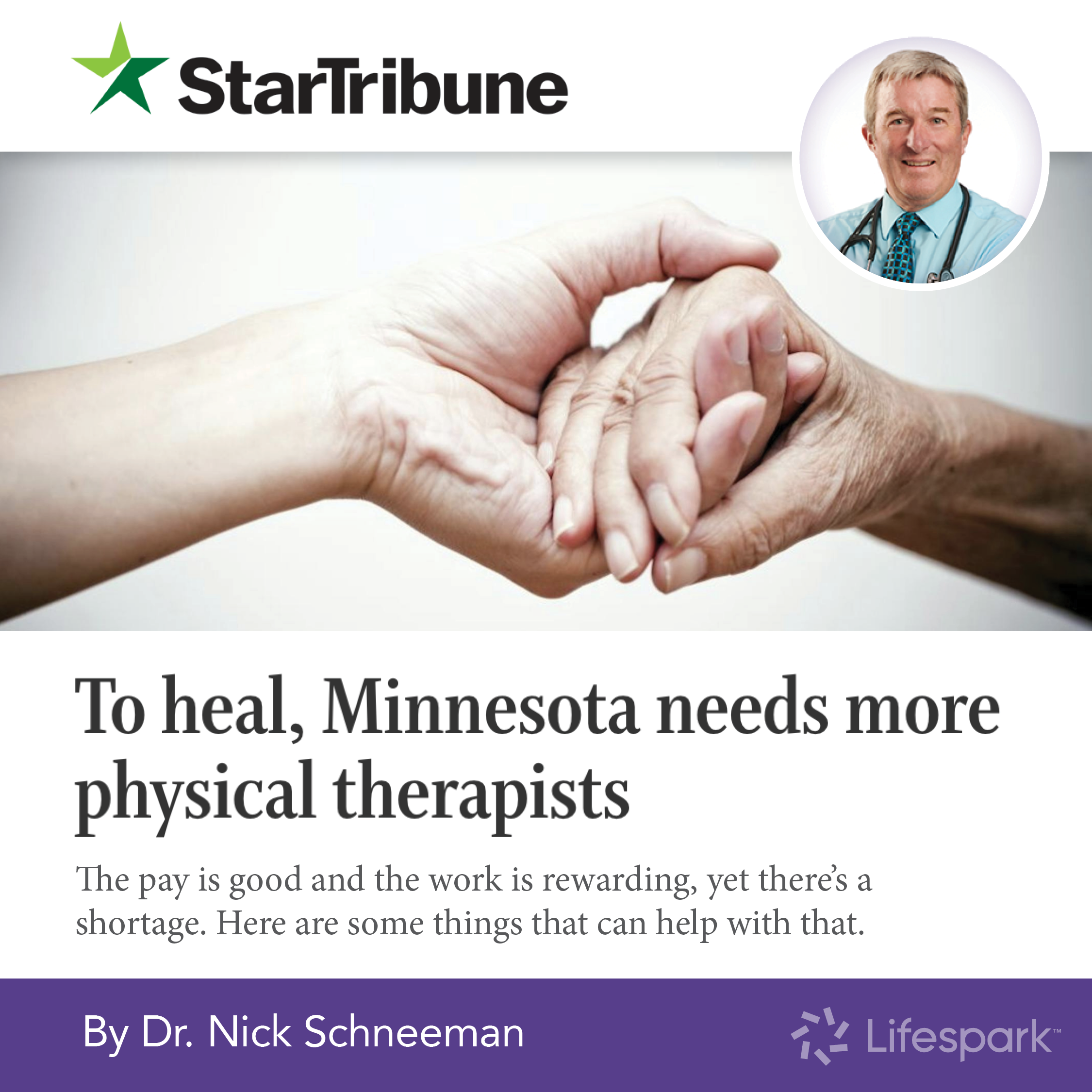
Nurses are in high demand. Everywhere. Yet, in the industry today there’s not enough staying power to keep them rooted where they are. Gone are the days of nurses staying with a company for years, investing in the culture and growth, and being part of the change for those they serve. In a world of burnout, we can’t really blame it all on COVID can we? Is politics to blame? Disconnect to the mission or values don’t align? Or has the ‘sick care’ system made health care professionals burnt out simply because well, it’s sick – it’s too reactionary, transactional, and puts time limits and restraints on people’s ability to truly nurse.
Cindy Crawford, an RN Hospice Clinical Liaison for Lifespark Hospice, has her own perspective which led to her leaving Lifespark then quickly returning. There was a moment of time where she felt she wasn’t being heard, she was starting to feel burnout creep in, and she needed a change. At the same time, another company was heavily recruiting her to join their team. “The incentives grabbing nurses’ attention are compelling, I was offered $20,000 to change jobs so I took the risk,” said Cindy. “What I quickly found out though – those big financial promises didn’t mean they were human.”
After coming back to Lifespark less than a year later, Cindy’s experience has a telling story of what nurses really want, and what they don’t from years of nursing experience long before COVID became the scapegoat for all things burnout.
Nurses Want To Be Nurses
Like many nurses, Cindy believes this isn’t a job but a calling. “I want to serve people and their families with the best possible experience giving them the support they need physically, emotionally, and spiritually,” said Cindy. She cautioned though that in today’s world of transactional health care, that is not always easy to do. Nurses spend long hours with multiple clients and are asked to do a lot without much support.
She believes this is why the traveling nurse is once again gaining popularity. “Many travel nurses I’ve worked with love their job because they don’t get stuck in company politics, they get to be a nurse, hone their skills, drive health outcomes, and have flexible workloads to manage work/life balance,” said Cindy. “And they’re not afraid to leave if values don’t align because jobs are plentiful for nurses.”
Cindy added that many nurses during COVID saw how quickly life can change – where they work has to put them front and center, much like they do for their clients and families. While traveling nursing isn’t for Cindy, she understands the appeal. Nurses want to be nurses and to be given the room to deliver the experience they want and grow their skillset. “For me, practicing true hospice care and transforming health care for seniors was non-negotiable,” explained Cindy.
Listening Is A Priceless Value
Cindy admits that in less than a year, Lifespark Hospice had a huge shift in how they operated. “They listened,” said Cindy. “I was always drawn to the mission and was enamored by how they were transforming health care overall, but I left because I wasn’t feeling connected. I aired my frustrations and instead of pushing those thoughts aside, they took action. Ultimately, that’s what drove me back to Lifespark.”
From her perspective, there are a lot of companies out there who throw money at you for incentives, promise work-life balance, but they don’t connect to you what you want out of nursing and support you in that personal mission. Instead, it’s a fragmented experience that leads to frustration.
In her new role at Lifespark, Cindy feels empowered. “I’m utilizing my nursing skills to practice true hospice but I’m also identifying gaps and bringing expertise and education to nurses to help them build their skillset and support them as a nurse,” added Cindy. “Our clinical minds are constantly hungry to learn and evolve and I get to create that experience for our team.”
Her biggest message to health care companies: nurses want to be heard, and when they aren’t – money won’t matter. She knows that now after leaving Lifespark. “I am feeling inspired by Lifespark. After years of experiencing accelerated growth, I feel like Lifespark leadership is listening to the needs of not only its clients but its people and creating a culture where work-life balance is a top priority,” said Cindy.
The reality is, companies grow but those that adapt, learn, put people first and above all listen, are the ones who create the staying power nurses seek. Perhaps it will ground even the happiest of travel nurses. “Listening doesn’t cost health care anything,” added Cindy. “But when you feel heard and valued, burnout is extinguished.” Interested in exploring a career at Lifespark – check out these opportunities on our careers page.




